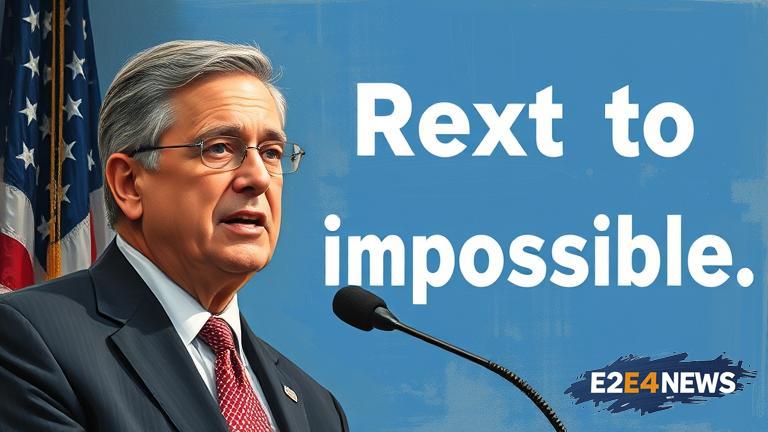In a recent interview with Newsmax, US Senator Roger Marshall expressed his concerns about the difficulty of reducing the US budget. Marshall stated that it is ‘next to impossible’ to make significant cuts due to the entrenched interests of various groups and the lack of bipartisan cooperation in Congress. He emphasized that the current budget is unsustainable and that drastic measures are needed to avoid a fiscal crisis. The senator pointed out that the national debt has surpassed $31 trillion, with the annual deficit exceeding $1 trillion. Marshall argued that the budget process is broken, with politicians prioritizing short-term gains over long-term fiscal responsibility. He criticized the practice of earmarking, where lawmakers insert pet projects into spending bills, as a major obstacle to reducing the budget. Marshall also expressed frustration with the lack of transparency in the budget process, making it difficult for lawmakers to identify areas for cuts. The senator proposed a number of reforms, including a balanced budget amendment and a line-item veto, to help reduce the budget. However, he acknowledged that implementing such reforms would be an uphill battle. Marshall’s comments reflect the growing concern among lawmakers and economists about the US debt and the need for fiscal reform. The senator’s remarks also highlight the deepening partisan divide in Congress, which has hindered efforts to address the budget crisis. Despite the challenges, Marshall remains committed to finding solutions to reduce the budget and ensure a sustainable fiscal future for the US. He emphasized the need for bipartisan cooperation and a willingness to make tough decisions to achieve meaningful reform. The senator’s interview with Newsmax has sparked a renewed debate about the US budget and the need for fiscal responsibility. As the national debt continues to grow, lawmakers like Marshall are sounding the alarm about the need for urgent action to avoid a fiscal crisis. The US budget is a complex issue, with many competing interests and priorities, but Marshall’s comments highlight the importance of finding a solution to ensure the long-term prosperity of the country.
